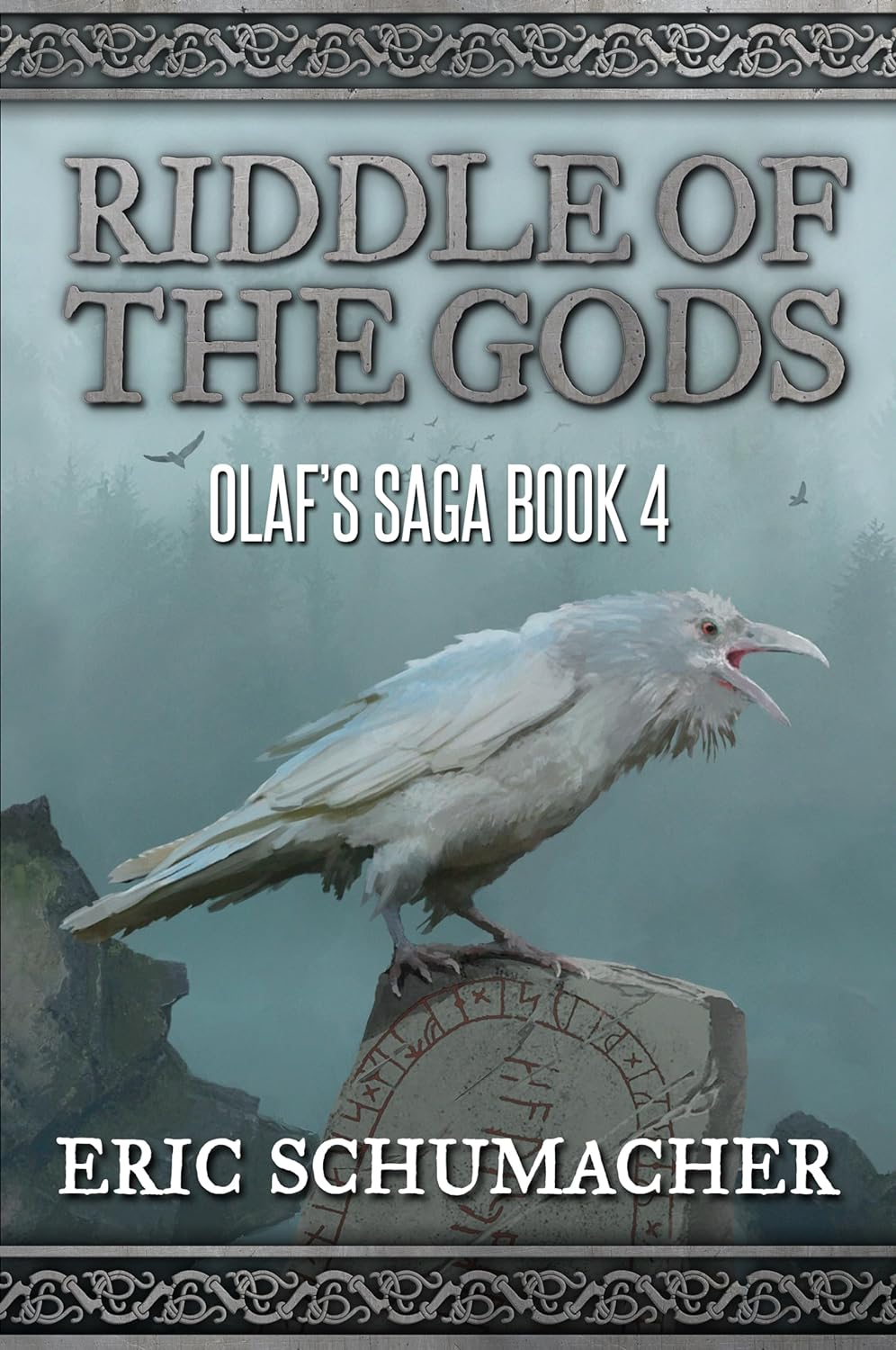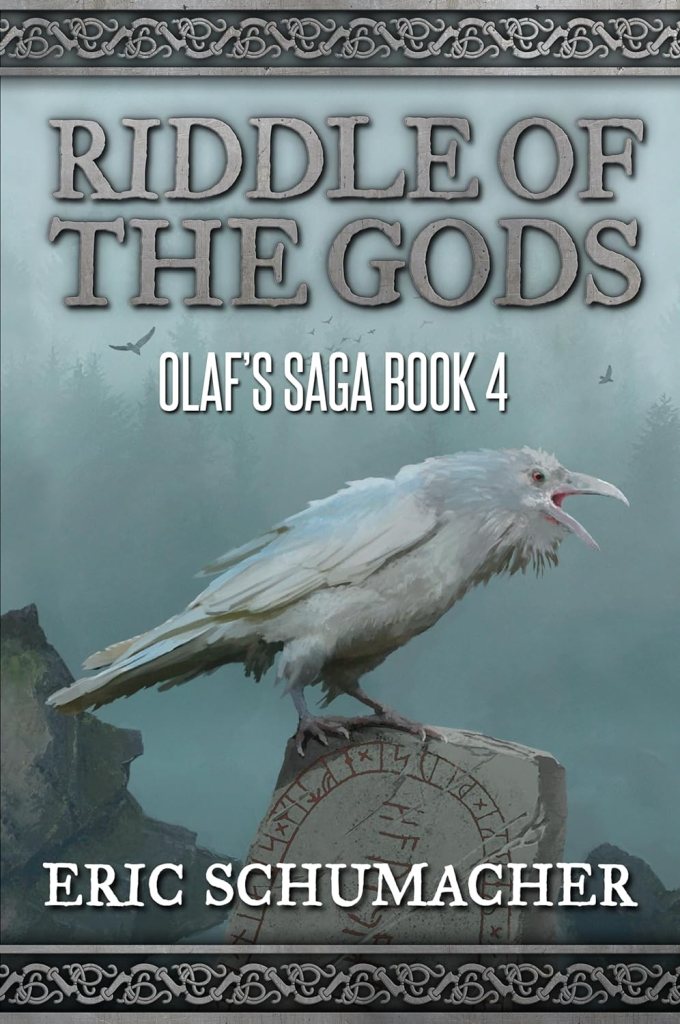Here’s the blurb
Riddle of the Gods is the riveting fourth novel in the best-selling series chronicling the life and adventures of one of Norway’s most controversial kings, Olaf Tryggvason.
It is AD 976. Olaf Tryggvason, the renegade prince of Norway, has lost his beloved wife to a tragedy that turns the lords of the land he rules against him. With his family gone and his future uncertain, Olaf leaves his realm and embarks on a decades-long quest to discover his course in life.
Though his journey brings him power and wealth, it is not until he encounters the strange man in the streets of Dublin that his path to fame unfolds. And in that moment, he is forced to make a choice as the gods look on – a choice that could, at worst, destroy him and at best, ensure his name lives on forever.
Purchase Link
My Review
Riddle of the Gods is the fourth book in the Olaf’s Saga series of novels detailing the life of the famous Olaf Tryggvason (the man whose name I can never spell correctly). Riddle of the Gods begins in Wagaria, where Olaf is married and expecting his first child, only for tragedy to strike. Deciding to jump ship rather than being forced out, Olaf leaves Wagaria and determines to change his future by taking up raiding.
Fast forward about six years, and Olaf and his warriors arrive in Ireland to continue their pursuit of wealth. While we hear little of Olaf’s life for the preceding six years, our narrator, Torgil, offers some insights into just how they’ve been growing their wealth. With it, we begin to realise that Olaf is perhaps not the hero we might expect him to be, taking part in enslaving people who fall foul of his blades, even though he was once enslaved himself.
Torgil is our narrator for Olaf’s tale, having once sworn an oath to Olaf’s father to protect a man he considers as his friend. But this friendship is tested as Olaf casts aside any belief that stands in his way of growing wealthy and powerful, and earning himself an enemy in the form of Torgil.
While Torgil returns to Dublin on Olaf’s remarriage, seemingly cast out by his powerful friend, Olaf continues to grow richer and more influential in northern England, although we only hear about this from Torgil’s old ship brothers. Olaf, it transpires, has no problem being less than honest with his fellow warriors, casting Torgil as a traitor when he’s not. The book’s final act follows Torgil as he understands just how far Olaf has fallen in his estimations but also how Olaf isn’t the only one to have put ambition above all else. There will be more to follow in continuing books.
Torgil is an engaging character, and his part in Olaf’s tale is that of an honourable friend pushed to the limits of his endurance. While the two don’t meet again in the final act of the book, it’s to be assumed that they will once more come into conflict with one another in subsequent stories. Olaf himself is a slippery character – knowing full well what lies in Olaf’s future – it’s intriguing to encounter him as a younger warrior, hellbent on achieving as much as he can no matter what.
Riddle of the Gods is sure to appeal to readers of the era and genre—and yes, it might be book 4 in a series—but like me, readers could pick up the tale here quite easily. It is an engaging and confident story that takes the reader from Wagaria to Norway to Ireland and England at the advent of the Second Viking Age.
Read more about the earlier books in the series.
Meet the author
Eric Schumacher discovered his love for writing and medieval European history at a very early age, as well as authors like J.R.R. Tolkien, C.S. Lewis, Bernard Cornwell, Jack Whyte, and Wilbur Smith. Those discoveries fueled his imagination and continue to influence the stories he tells. His first novel, God’s Hammer, was published in 2005.
You can follow Eric Schumacher on Amazon or by joining his newsletter at https://www.ericschumacher.net/readers-club.


